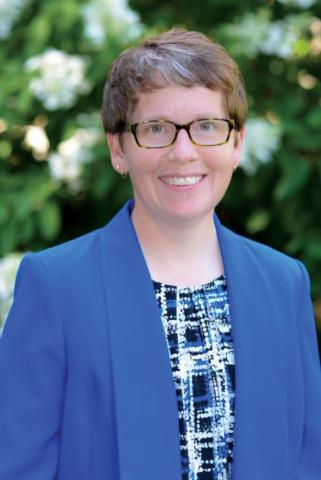Ask Becky
On networking for BIPOC and navigating databases.
Do you have networking resources specifically for BIPOC? — Networker
Dear Networker:
We all benefit from diverse perspectives in our networks. At the same time, we often want to make connections around shared identities, affiliations, and affinities in order to navigate common experiences and challenges.
First, hopefully most readers already know that they can connect with each other via Tapestry, the affinity group for alumnae/i of color, as well as via the Mawrter Connect community and the LinkedIn group Bryn Mawr College Alumnae/i. You likely also have some ideas about how to explore Bi-Co, Tri-Co, 7S, and other communities with strong BMC ties.
Consider expanding your network through these BIPOC communities:
- Black Professionals Network (BPN), a nonprofit social learning organization, aims to advance the economic and social capital of career professionals.
- Black Young Professionals Network (BYPN), a platform with tens of thousands of members globally, provides a social network, professional development blogs, leadership podcasts and events, and newsletters.
- Elivade, a career community for people of color co-founded by Edisa Rodriguez ’07, brings together thousands of diverse professionals and peers to share resources and opportunities, cultivate peerto- peer mentorship, and grow careers together.
- Valence has a mission to unlock the global combined power of Black professionals to create massive economic and social progress.
In addition to these networking communities, there are many industry-, field-, and sector-specific professional associations specifically for BIPOC individuals. Some national and international associations have committees, caucuses, or other affinity groups built into the structure of the larger organization, as well. Consider using the College social media channels or the discussion board in Mawrter Connect to share your specific recommendations with others in the community!
How do I get my resume noticed if it’s trapped in a database with hundreds of others? — Eager to Interview
Dear Eager:
Many organizations use Applicant Tracking Software/Systems (ATS) to collect and manage resumes, cover letters, and other application materials. Chances are good that a computer will “review” your resume before a human being does, so consider these tips.
- Tailor your resume to each job. The skills and qualifications listed in a job posting will include keywords used when algorithms search applications.
- Don’t use headers, footers, complex tables, or text boxes. Not all ATS systems can “read” the content within these features.
- A traditional chronological or hybrid resume format, with clear month and year date ranges, is recommended.
- Using noun and verb forms of skills, as well as spelling out common abbreviations, may ensure better “hits” on your resume. In a skills list, write “Budget Management,” and in an experience description, “Managed and allocated a budget. …” For a degree, you might use both “Master of Business Administration” and “MBA.”
- Don’t list a degree or credential immediately after your last name, “Becky Ross, MA”, as some systems may read “MA” as your last name (and you will essentially be mis-filed in the database). Not all ATS work the same, so review current articles online for examples and advice on optimizing your documents for today’s job search!
Need help navigating the world of work? Career guru (and Bryn Mawr's senior associate director of Alumnae/i Career Services) Becky Ross takes your questions at raross@brynmawr.edu. Please keep your questions succinct.
Published on: 03/19/2021
